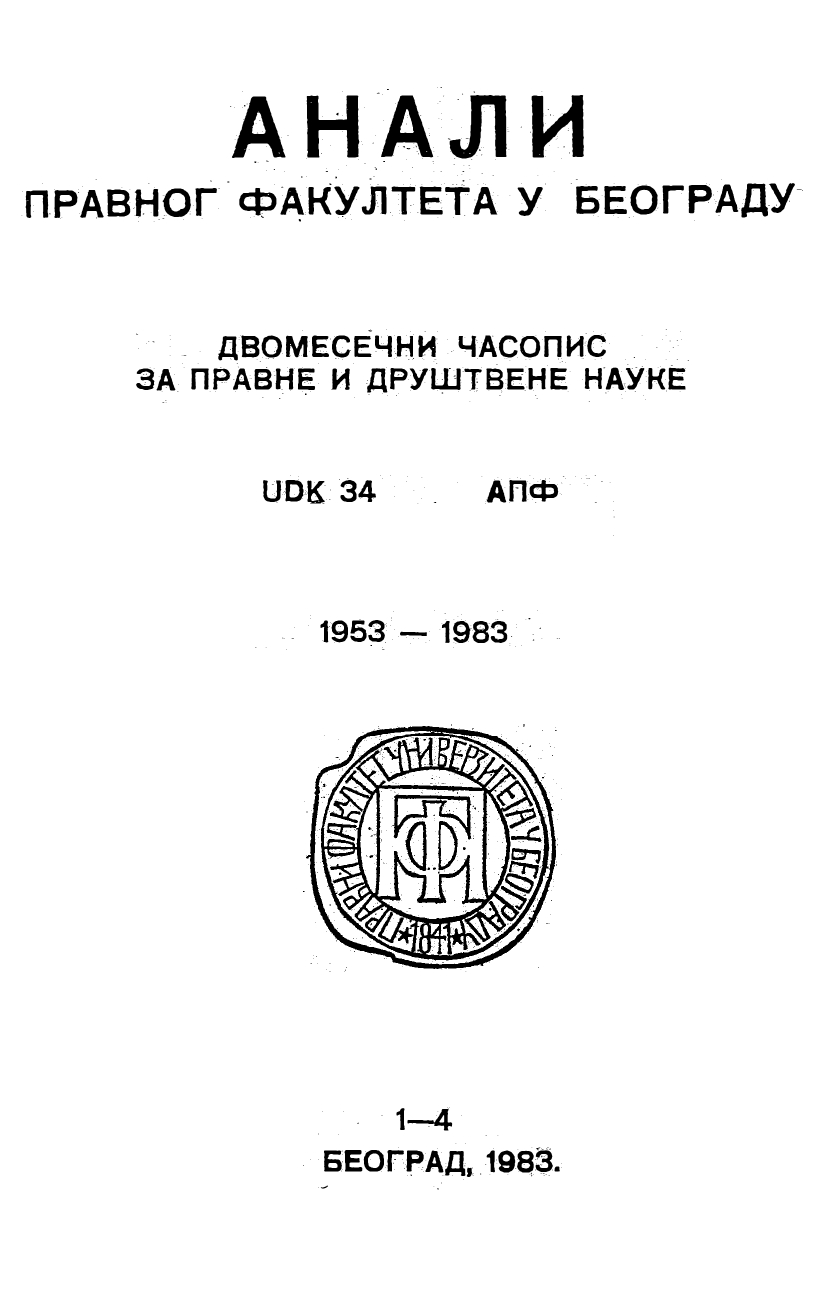РАЗМИШЉАЊА О СВОЈИНИ
REFLECTIONS ON OWNERSHIP (I. E. PROPERTY)
Author(s): Andrija GamsSubject(s): Economy, Law, Constitution, Jurisprudence, Financial Markets
Published by: Правни факултет Универзитета у Београду
Summary/Abstract: In the first part of the essay, the author asserts that power (in the form of state or other organised coercion) and ownership (i.e. property) are two essential institutions inevitable in every society — contrary to a number of theoreticians who contend that power and ownership (i.e. property) are a deviation of society from a certain original, authentic model. He then goes on to present the views of some of the world’s leading religions on this topic as well as two main philosophical approaches to it: firstly, the idealistic and volitional approach, which lends to give preference to will in laws, considering ownership (i.e. property) as a projection (rather „ownership-ization”) of will, and secondly, the materialistic and positivistic approach, which the essence of ownership (i.e. property) sees in the materialistic necessity of appropriation, regarding the right of ownership as a normative reflection of that necessity. From the economic point of view, ownership (i.e. property) represents the fundamental motivation and purpose of economic activity. On the one hand, there is collective ownership (i.e. property), where production of a social collectivity as a whole (clan, tribe of large family) is solely concentrated at the direct supply of the needs of its members according to set rules or principles. Apart from this historical form of collective ownership (i.e. property), there is also the modern form, both in the East European socialist countries and the capitalist countries of the West: nationalised enterprises, public services, concessions, fiscal policy and control, etc., On the other hand, private ownership (i.e. property) is, in economic terms, a commodity — a product intended for exchange on the market and the indirect satisfaction of needs. The private interest imposing competition is expressed through the commodity. Legally speaking, collective ownership (i.e. property) is a complex phenomenon regulating not only appropriation but also other authorities and obligations of those engaged in appropriation and production, for instance, feudal ownership (i.e. property). This form of ownership is split at the same time, because different owners all have different authorities and obligations, in contrast to joint ownership (i.e. property) in civil law, where the enjoyment of rights in split among several title-holders. However, private ownership is indivisible, comprising the authority of free utilisation and disposal. Civil law, in the main, is merely a. projection of private ownership (i.e. property) appearing in the form of appropriation, because the law of obligations also' comprises appropriation as its economic substance, but appropriation of the market (turnover) value of the commodity, while property rights pertain to the use value of the commodity. This characteristic right deriving from the law of obligations is reflected in the concept of real estate (or property). The .parallel between the comodity economy and civil law leaves room for a deeper probing into some of the problems concerning the theory of civil law, such as: the problem of custody, appearing in that respect as economic ownership (i.e. property); then the problem of cause in legal transactions, appearing as the economic effect of the statement (expression) of will featuring in the real estates (or properties) of the concerned parties, being distinctly separated from the legal basis which represents the approval of the legal transaction from the aspect of „objective law” (i.e. property law); finally, the legal person is, in the main, the personified (into the subject transformed) real estate or property, etc. In the last part, the author looks into the views of Marx and Engels on ownership (i.e. property). They regard ownership (i.e. property), apart from other definitions, as an aggregate of production relations. They recognise both collective and private ownership (i.e property). They confront all forms of ownership (i.e. property), including forms of collective ownership (i.e. property) if these forms incorporate an individual interest for appropriation, and that interest is protected by law to a form of collective ownership (i.e. property) anticipated to be established in a future, non-alienated, harmonious, communist society, in which there will be no classes, no state of other organised coercion; however, this society is a vision of theirs in a world-wide historical format.
Journal: Анали Правног факултета у Београду
- Issue Year: 31/1983
- Issue No: 1-4
- Page Range: 192-210
- Page Count: 19
- Language: Serbian

